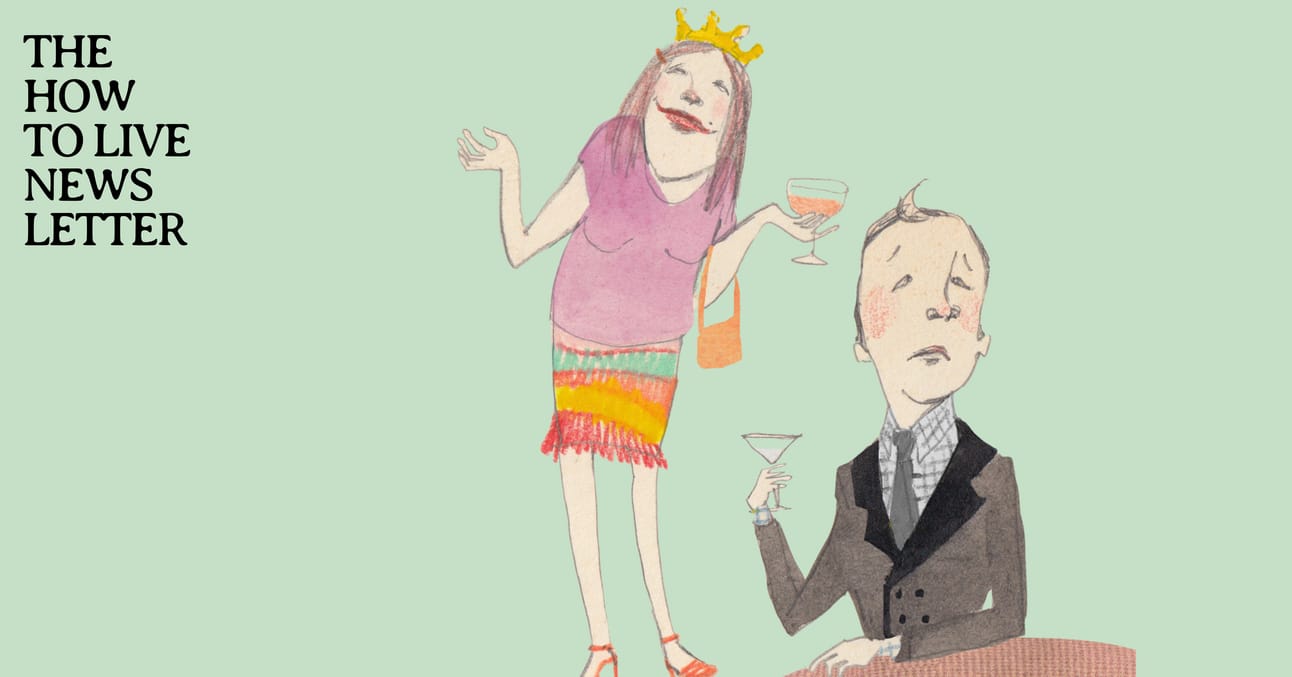Welcome to The How to Live Newsletter, where we uncover the hidden psychological forces shaping our lives—and holding us back.
Through deep research, personal storytelling, and hard-won insight, I challenge the myth of normalcy and offer new ways to face old struggles.
This newsletter is reader-supported—if it resonates, please consider a paid subscription for deeper insights, exclusive content, community, and an ad-free experience. ❤️
You can also donate any amount.
The Unbearable Lightness of Being Disliked.
Meanings are not determined by situations, but we determine ourselves by the meanings we give to situations.
In 1902, Sigmund Freud sent an invitation to the Austrian psychotherapist Alfred Adler:
Upon his acceptance, Adler became a member of “The Wednesday Psychological Society” (later the Vienna Psychoanalytic Society), whose ideas would eventually become known as modern psychology.

Alfred Adler | Getty Images | Heritage Images / Contributor
But by 1912, Adler broke away.
Why?
Because Freud was pulled inward—obsessed with the subconscious, with drives and instincts and unresolved childhood conflicts. His lens was microscopic, intimate, intrapsychic.
Adler, on the other hand, looked outward. He saw that a person cannot be understood in isolation. We exist in systems: family, culture, class, school, work, history. For Adler, the human condition wasn’t just internal—it was social. Personal problems, he believed, were always interpersonal.
His belief in change foreclosed on fate, determinism or pathologies as destinies.
More than a hundred years later, Adler’s ideas have been resurrected in a book that’s quietly reshaped the way millions of people think about identity, self-worth, and belonging:
Through a philosophical dialogue between a teacher and a skeptical student, and based on the Socratic Method, the book introduces Adler’s concept of Individual Psychology—a growth-based approach that rejects determinism and asks us to stop living according to other people’s values.
The Courage to Be Disliked: The Japanese Phenomenon That Shows You How to Change Your Life and Achieve Real Happiness by Ichiro Kishimi and Fumitake Koga has sold over 3.5 million copies—nearly outselling my own book Little Panic: Dispatches from an anxious life (this is a joke, for anyone new to how I operate).
Despite its deceptively gentle tone, the book makes an urgent case:
If you spend your life trying to be liked, you will never be free.
If your worth depends on the approval of others, you will never feel whole.
We confuse being liked with being safe. We confuse pleasing others with knowing ourselves.
But here’s the catch:
We are evolutionarily wired to care what people think.
Our brains are tribal. Our nervous systems are social. In prehistoric times, exile meant death. To be cast out from the group was to die alone in the wilderness. That fear didn’t vanish—it evolved.

Original art for How to Live is by Edwina White
The stakes may be lower now, but the fear is just as sharp.
Adler understood this. But instead of pathologizing our fear of rejection, he gave us a new way to live with it—a way to separate ourselves from the entanglements of social pressure without losing our place in the human community.
And it starts with a single, powerful question:
You are currently reading the free version of the newsletter. To read the rest of this piece and unlock the entire archive, consider upgrading.
Join How to Live
For people who live in their heads, feel more than they show, and want a language for both.
Every Essay, Every Time.What you’ll receive as a subscriber::
- Every new essay, the moment it’s published
- Full access to the complete archive—150+ posts and counting
- Bonus pieces and experiments-in-progress, shared occasionally
- Invitations to seasonal, in-person gatherings
- A direct line to me (annual subscribers): personal replies and tailored recommendations
- 15% off all workshops and live events


